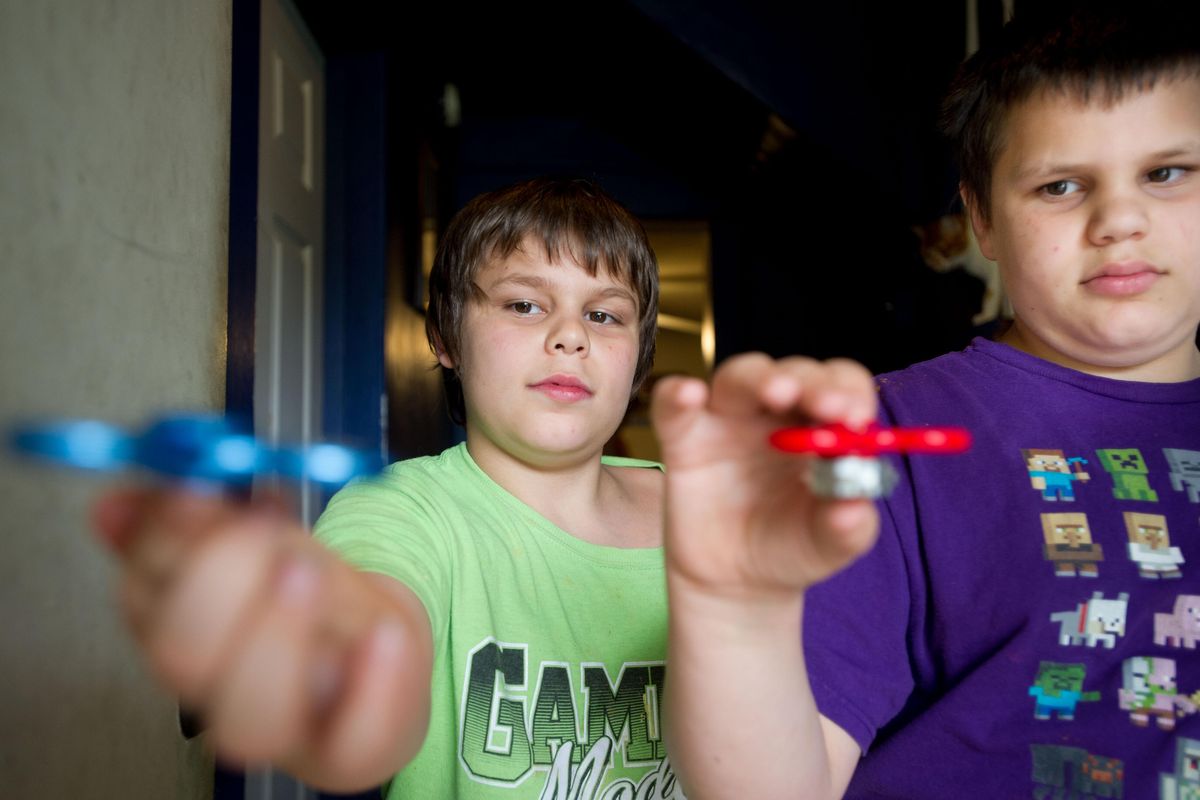Fidget spinners, a fun and therapeutic tool? Or, a distracting toy?

Fidget spinners: A fun and therapeutic tool? Or, a distracting toy?
Although the devices are billed as a therapeutic device, Holly Davenport, an occupational therapist at Kootenai Health in Coeur d’Alene said they are more toy than therapy.
“I think that they are super distracting,” Davenport said. “Because they have all these bells and whistles and lights and everything.”
Davenport said she’s heard that teachers in the Coeur d’Alene area are banning them from their classrooms. That doesn’t mean fidget devices aren’t useful. They are.
“There are huge benefits to keeping your hands busy so you can visually and auditorily attend,” she said. “But if you’re sitting there doodling with a pen that’s making noise and lighting up you’re not going to be paying attention.”
But for Carla Hume’s two children, fidget spinners have helped them mitigate anxiety and focus issues they have.
“It helps them to concentrate,” Hume said. “It gives them something to do.”
Simon Hume, 11, is diagnosed with high functioning autism and has sensory issues. Cody, 10, has ADHD, Hume said. Both use fidget spinners to help concentrate and stay calm.
“It’s been a good thing that way,” Hume said. “And actually with concentration, yes they seem to do better.”
Franklin Day, the associate director of special education for Spokane Public Schools, said he hasn’t seen any research looking into the benefits of fidget spinners for students. However, he said if students benefit from fidget devices they should use them.
“We do have many students who have an accommodation of fidget devices or fidget tools,” he said.
Those can range from the popular fidget spinners, to more traditional objects like play dough or Rubik’s Cubes – or even devices that students can chew on. For some children those devices are included in their special education plans, which allows them to keep them out during class.
Day’s one concern with fidget spinners is they may distract students from class lessons.
“We try to build any kind of fidget device as an enhancement to the content, not as a detractor from the content,” he said.
Kevin Morrison, the district spokesman for Spokane Public Schools, said he hasn’t heard reports of fidget spinners being a problem in the classroom.
It’s the same story in the Coeur d’Alene School District, said Victoria Michael, a communication assistant for the district. Individual teachers can decide whether to allow the devices into their classrooms, and Michael said she hasn’t heard widespread concern.
Fidget devices writ large are a long-standing and accepted therapeutic form of aid, said Christy Adams, an occupational therapist at Periwinkle Children’s Therapy in Coeur d’Alene.
“These can be calming for some children if they are used in the right amount or at the right time,” she said. “It just depends on the fidget and the kid.”
Adams said she imagines that fidget spinners might be helpful for the “right kid.”
Holly Bahme Lytle said fidget spinners have had mixed results in her family. She has two children, one with Tourette’s syndrome and another with autism.
“The fidget spinner has been hugely helpful for my teenager with Tourette’s. He uses the spinner to redirect some of his undesired vocal and physical tics which is GREAT,” Lytle wrote in an email.
However, for her son with autism the device has been a “HUGE distraction.”